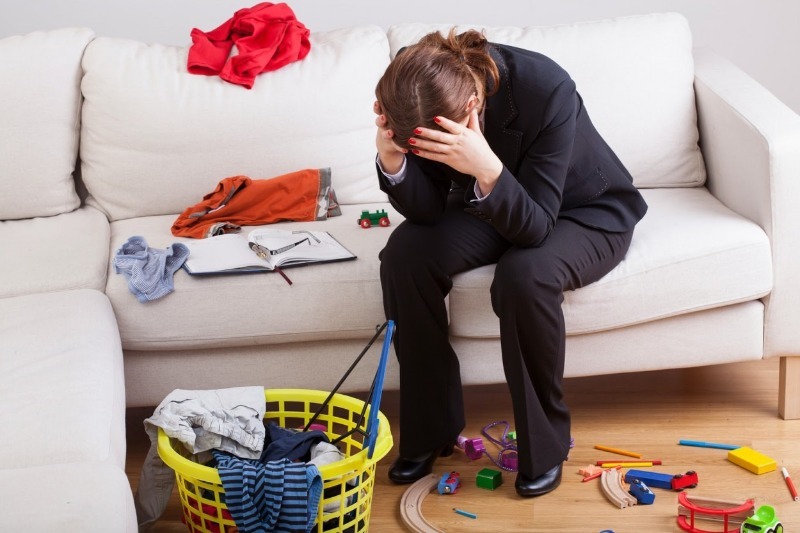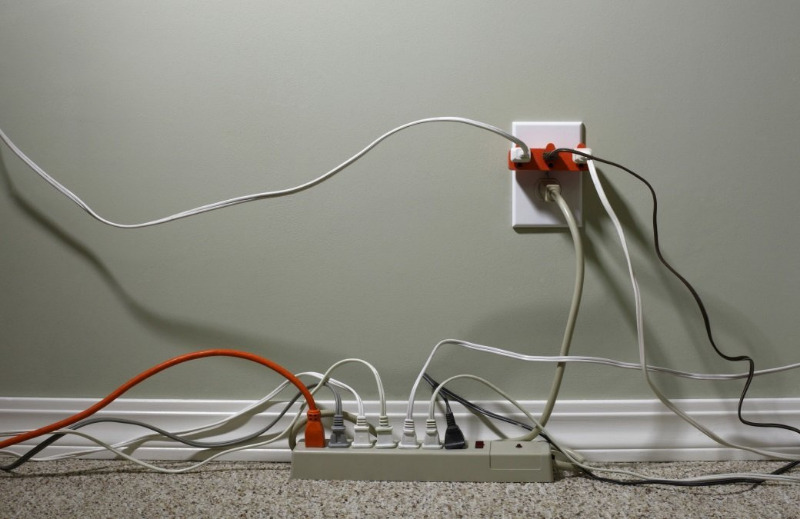7 psychological problems that mess in the house speaks of
When the creative mess in the house develops into chaos, where not a single necessary thing can be found, it's time to think. Perhaps the reason is deep inside.
Pathological laziness or sloppiness
The formation of household skills begins in childhood. An example is the home environment, the attitude to the cleanliness of parents and relatives. In families where a child is loved and raised without kicks and slaps, self-sufficient, comprehensively developed personalities grow up.
Often a mother, obsessed with cleanliness, sprinkling a child on dirty shoes or greasy stains on clothes, grows a sloth and a mess, intentionally unwilling to clean. Or, conversely, excessive cleanliness develops into a pathological desire for sterility. The child perceives all those around him as potential pests that can spoil the established order.
Demonstration
A character trait characteristic of insecure individuals who seek the support of their surroundings. The house of such people is clean, comfortable, things on the ground. However, if you look into the drawer of the table or try to open the cupboard, you will see a uniform mess. It is possible that a mountain of hastily shoved clothes will fall on you.
People with a demonstrative type of character have a desire to please people, so they try to adhere to social norms, to be like everyone else. If it turns out badly, they choose a different model of behavior - commit acts that cause negative reactions in society. And all for the necessary attention.
Reluctance to become an adult
The most common cause of domestic disorder lies in the lack of education. Parents missed an important moment of accustoming to cleanliness, and in adulthood, a person remains a child, whom everyone takes care of: feed, wash, clean.
Often, older children are found among the male population. In this case, the following stereotypes act negatively: a woman is a mistress, a keeper of a hearth, and a man is a getter. The problem is also relevant for wealthy families, where wealthy homeowners can afford to support a nanny, housekeeper, and cleaning lady.
Having matured, a person begins an independent life, and the habit of living in luxury, not caring for the cleanliness of the house, remains. There are several outputs:
- gradually learn to keep order;
- make money on a housekeeper;
- to marry (marry) and shift the responsibilities of housework to the second half;
- to return under the wing of parents and remain a child in life.
None of these options characterizes a self-sufficient person.
Heightened self-esteem
To identify a person with a high level of anxiety who seeks to control everything and impose his principles on others is simple. Just look at his desktop. If he is overwhelmed, and so much so that it’s hard for the owner to find the thing he needs right now, we are either a creatively gifted inventor or a narcissistic infantile egoist. Sometimes both types are combined in one person.
Such people are not adapted to everyday life, they live in an illusory world where everything, supposedly, is subject to their personality. Because of their behavior, they are often rejected by society. Without the support of loved ones, they lock up, get drunk and even start using drugs.
Procrastination
Putting off important things, performing optional tasks ahead of the main and urgent, in psychology is called procrastination. The reasons for this behavior:
- laziness;
- the spirit of contradiction, unwillingness to follow the norms
- stress;
- fatigue;
- inept planning;
- reassessment of opportunities;
- low self-esteem;
- self-restraint (fear of standing out).
Household procrastination is characterized by a refusal to perform routine duties: cleaning, ironing, washing dishes. Only when visible mountains of dirty plates accumulate do you have nothing to put on, crumbs on the floor prevent you from walking - a person undertakes spring cleaning, often not completing what was begun to the end.
Neurosis
Difficult life situations provoke psychological breakdowns in individuals with a weak nervous system. In everyday life, this is often manifested by the desire to hide among things. In stress, a person ceases to realize that all the good he has accumulated is ordinary rubbish, which he needs to get rid of.
Initially, objects remain in the house as memories, gifts of significant people, with a view to their further use. Such people are inherent in the so-called Plyushkina syndrome - a tendency to accumulation. Values are stored, while occasionally moving over, shifting from place to place.
When the destructive mechanism of neurosis starts and the desire to fill the free space in the house crosses all borders, a person carries illiquid from dumps and from the street: bottles, rags, broken toys, unsuitable furniture. Thus, he tries to compensate for the lack of love, the feeling of insecurity and loneliness - material objects fill the spiritual emptiness.
Apathy
Indifferent, indifferent attitude to the world, events, people - this is how apathy manifests itself. It is included in the list of symptoms of various diseases:
- Depression
- schizophrenia;
- dementia
- Alzheimer's, Peak, Lyme diseases;
- AIDS.
Weak attempts to do something around the house end with a drop of hands, inventing excuses such as “headache”, “I feel bad”. And a person really convinces himself that he is physically ill, not realizing that in fact the nature of this fictitious reason is psychological.
With the neglect of apathy, the experience of a dirty stove, cobwebs in the corners, not taken out garbage packages, roaming cockroaches everywhere disappears.
Undoubtedly, cleanliness in one's own home is necessary, because life in a mess provokes the development of psychological problems. Do not go in cycles in household trifles - one dirty plate should not become a cause of bad mood and the conflict with close people.




